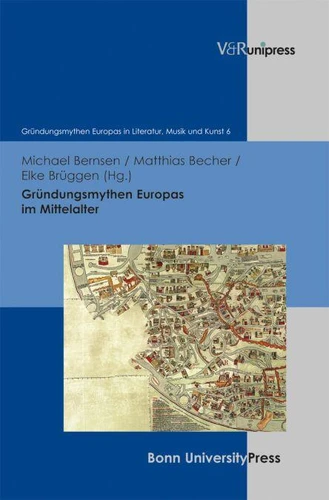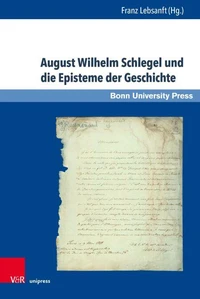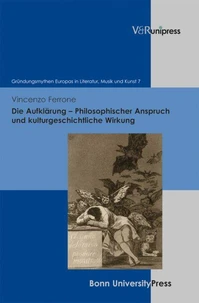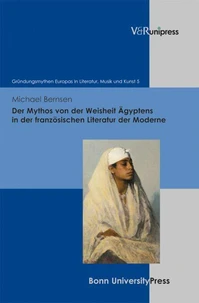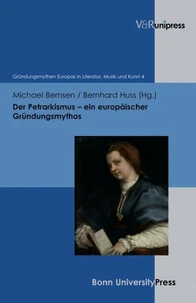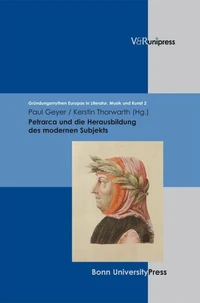Gründungsmythen Europas im Mittelalter
Par : , , ,Formats :
Disponible dans votre compte client Decitre ou Furet du Nord dès validation de votre commande. Le format PDF est :
- Compatible avec une lecture sur My Vivlio (smartphone, tablette, ordinateur)
- Compatible avec une lecture sur liseuses Vivlio
- Pour les liseuses autres que Vivlio, vous devez utiliser le logiciel Adobe Digital Edition. Non compatible avec la lecture sur les liseuses Kindle, Remarkable et Sony
 , qui est-ce ?
, qui est-ce ?Notre partenaire de plateforme de lecture numérique où vous retrouverez l'ensemble de vos ebooks gratuitement
Pour en savoir plus sur nos ebooks, consultez notre aide en ligne ici
- Nombre de pages225
- FormatPDF
- ISBN978-3-8470-0075-4
- EAN9783847000754
- Date de parution16/01/2013
- Protection num.pas de protection
- Taille3 Mo
- Infos supplémentairespdf
- ÉditeurV&R Unipress
Résumé
The term 'founding myth' is shaped by the breakdown of the old and new mythologies in the 18th and 19th centuries. A revival of the values of the Christian Middle Ages, the Renaissance, the Reformation, and to some extent even the Enlightenment is therefore no longer possible. On the other hand, without the preservation of this cultural heritage Europe faces the threat of losing its identity. Founding myths had - and still have - a more sustained effect on the history of premodern Europe than rational thinkers of modern Europe are often willing to admit.
This volume examines the many medieval narratives of origins, lineages and direct contact with God in quite diverse contexts. The contributions discuss in particular to what extent premodern foundation myths contributed to the creation of European identity.
This volume examines the many medieval narratives of origins, lineages and direct contact with God in quite diverse contexts. The contributions discuss in particular to what extent premodern foundation myths contributed to the creation of European identity.
The term 'founding myth' is shaped by the breakdown of the old and new mythologies in the 18th and 19th centuries. A revival of the values of the Christian Middle Ages, the Renaissance, the Reformation, and to some extent even the Enlightenment is therefore no longer possible. On the other hand, without the preservation of this cultural heritage Europe faces the threat of losing its identity. Founding myths had - and still have - a more sustained effect on the history of premodern Europe than rational thinkers of modern Europe are often willing to admit.
This volume examines the many medieval narratives of origins, lineages and direct contact with God in quite diverse contexts. The contributions discuss in particular to what extent premodern foundation myths contributed to the creation of European identity.
This volume examines the many medieval narratives of origins, lineages and direct contact with God in quite diverse contexts. The contributions discuss in particular to what extent premodern foundation myths contributed to the creation of European identity.

